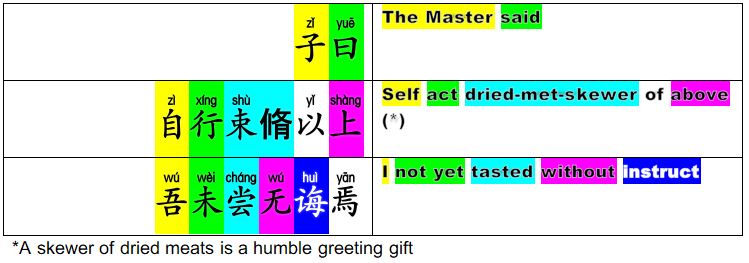Analects 7.12
Original Text:
子曰富而可求也虽执鞭之士吾亦为之如不可求从吾所好
Translation:

Other Translations:
The Master said, “If wealth were something worth pursuing, then I would pursue it, even if that meant serving as an officer holding a whip at the entrance to the marketplace. Since it is not worth pursuing, however, I prefer to follow that which I love.”
Confucius, & Slingerland, E. (2003). Analects: With selections from traditional commentaries. Hackett Publishing.
The Master said, If one could get rich just by trying, then although it meant being a herald with whip in hand, I would go along with that. But if one can’t get rich just by trying, I prefer to follow my own desires.
Confucius, & Watson, B. (2007). The Analects of Confucius. Columbia University Press.










